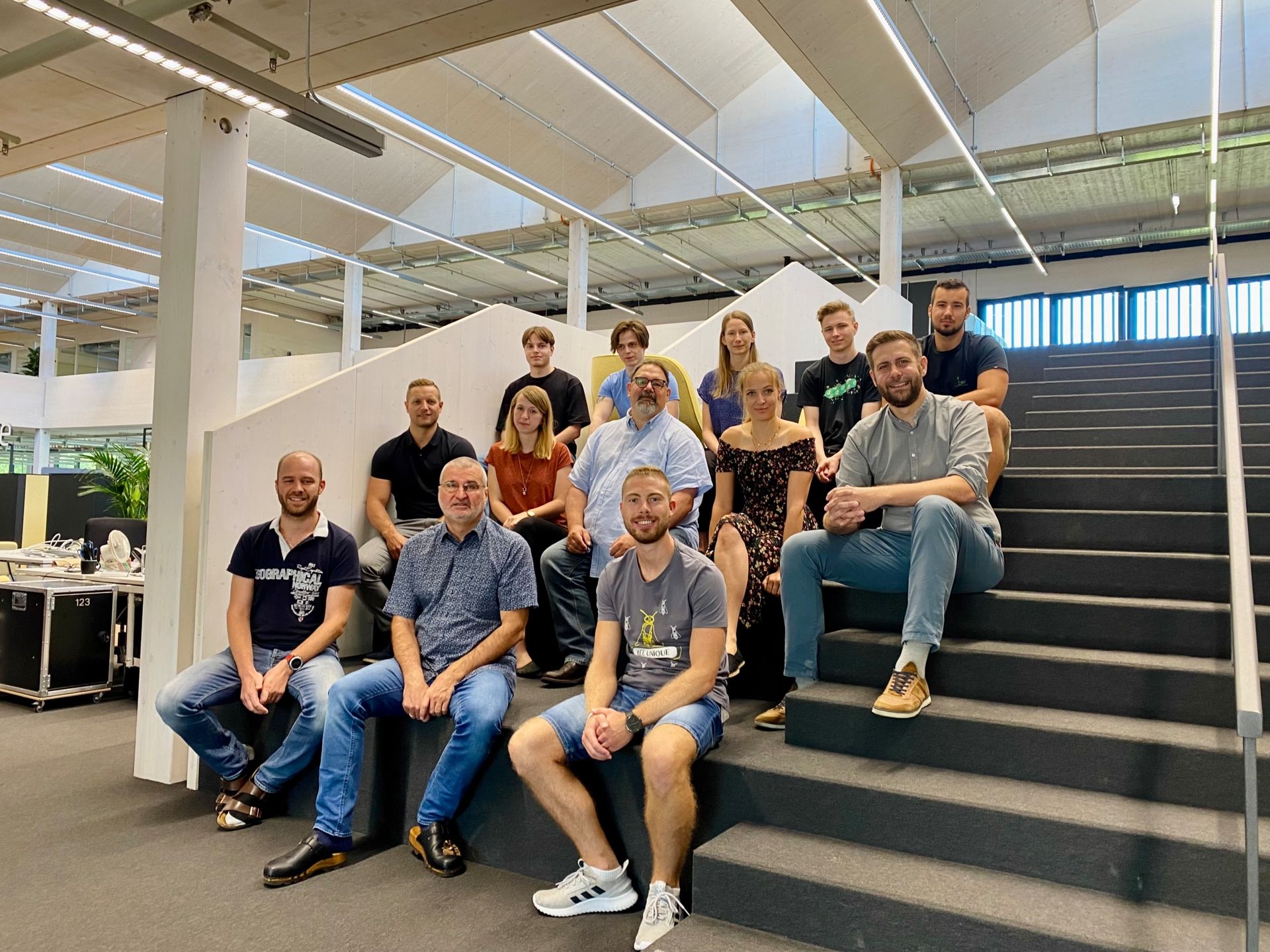
K-Businesscom as an intermediary between companies and research
The second floor of the Open Space in the OIC (Open Innovation Center) is a hive of activity. Lab Lead Manuel Moser and his friendly team from K-Businesscom (KBC) support companies on their path to digital transformation from here. To this end, they use sensor technology, IoT platforms and AI applications, making them a perfect fit for the OIC.
Manuel Moser provides exciting insights into KBC's work and projects in this interview.
Manuel, you've been at the OIC for a year now - what made you decide to move into the LIT Open Innovation Center and what does the location on the JKU campus and the proximity to research mean to you?
Wow, one year - time flies! When we heard about the vacancies at the OIC, it was clear to us that we had to move in because the location is a "perfect match" for us: as a digitalization partner for companies, we are a kind of intermediary between companies and research. The insights into research at the OIC give us the opportunity to look into the future for ourselves and our customers and to prepare ourselves accordingly for the trends and actively participate. For us, the open space is also the ideal space for creative work and "new work" models. The proximity and presence at the "talent factory" JKU is also not entirely altruistic. In addition to internships, bachelor's and master's theses, we also offer part-time jobs during your studies. This is ideal for students because they can quickly switch between university and work on campus, and our flexible working hours model makes it easier to combine work and study without losing sight of the essentials - completing your degree.
Do you have any examples of specific projects that you have already been able to implement thanks to your involvement in the LIT OIC?
Despite the COVID situation last fall and winter, we have already been able to start some activities within the community on campus. With the LIT Cyber-Physical-System-Labs, we were able to exchange experiences around software architecture and user experience. We were also able to advise a company on campus on the topic of AI (Artificial Intelligence) and IOT (Internet of Things) architectures. Another highlight is the cooperation with tech2B/PIER4 initiated via the OIC.
In this network, we exchange ideas on innovation and digitalization with leading Upper Austrian companies and start-ups. In this network, we also meet start-ups from the OIC, such as qapture, which brings us full circle. We still have a lot planned for the OIC in general and are looking forward to the future together.
Last year, Kapsch BusinessCom AG was spun off from the Kapsch Group and has been operating as an independent company ever since. Kapsch BusinessCom has now been given a new company name: Kapsch BusinessCom AG has become K-Businesscom AG. How does the "new start" feel?
For us as KBC and especially in digitalization, the spin-off has sparked a spirit of optimism. As an independent company, we can play to our strengths much more clearly and, with around 1,600 employees, we also have the clout to do so. Our management has managed the transition very smoothly and without friction, and the spin-off has had little impact on day-to-day business.
In your opinion, what is unique about K-Businesscom (KBC)?
Definitely the combination of tradition paired with the spirit of innovation that is deeply rooted in our DNA. Kapsch, and therefore also KBC, has been around for 130 years now and technological innovation has been a priority since the company was founded. From Morse telegraphs to radios (one is in the OIC, by the way) and train radio to IT solutions and now digitalization. This is unique in Austria and you can feel it in our daily work. The passion for the subject matter and our "way of working" is particularly noticeable in our team.
How can KBC platforms with IOT, AI and other software applications help companies in their digital transformation? Do you have a specific example of this?
One topic that is currently very exciting for us is "automated production planning". Austrian industry can hardly save itself from orders at the moment, even though the raw material and component situation is uncertain due to COVID and the war in Ukraine. Our production planning helps companies to get the "maximum" out of their production without losing sight of flexibility and the "human factor". In concrete terms, this means that complex algorithms and AI help us to find an optimal production plan that is precisely tailored to the company and its products, while still allowing humans to intervene and reschedule flexibly at any time. This allows us to position the software as a "digital work colleague" that takes the pressure off and not as competition for our own workplace. The system also helps the company to reduce energy costs, which are currently so high, and to optimize its CO2 footprint in terms of sustainability.
Hand on heart - which of your projects is currently your favorite and why?
Phew, that's a very difficult decision. One of our most exciting projects at the moment is definitely our agile "Inhouse Incubator". An internal think thank in which our employees think about things in a new way and from a different perspective. The incubator will help us to react even faster to the needs of our customers and market trends in the future. The OIC also serves as a popular creative space for us here, and our colleagues from Vienna also enjoy coming to the OIC for the workshops.
K-Businesscom as a mediator between companies and research | JKU Linz